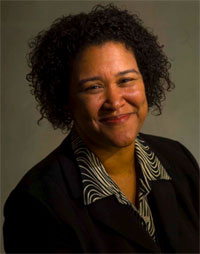
Harris will speak about liberal arts institutions and their adaptations to serve a changing student population.
The historian earned her bachelor’s degree at Columbia University before completing a master’s degree and Ph.D. in American history at Stanford University. A secondary field of study for her doctoral degree was African studies.
Her teaching has focused on pre-Civil War African American history from the time of the slave trade through the Civil War. She also has taught courses on the history of New Orleans before and after Hurricane Katrina; and on popular interpretations of southern slavery in 20th and 21st century America.
Before joining the Northwestern University faculty in 2016, she spent several years on the history faculty at Emory University. She has received several honors for her research and writing, including the 2014 Leadership in History Award of Merit from the American Association for State and Local History; the 2014 Award for Excellence in Documenting Georgia’s History from the Georgia Historical Records Advisory Council; and the 2015 Lilla M. Hawes Award for the best book in Georgia local or county history published in 2014 from the Georgia Historical Society.
This Austin College lecture honors the late A.J. “Jack” Carlson, who taught at Austin College from 1962 until his retirement in 1994. He remained an active member of the College community until his death in December 2014. He arrived at Austin College as a scholar of early modern European history and grew professionally under the influence of President John D. Moseley to become not only the Dean of Humanities but also one of the College’s leading voices in support of liberal arts education. Jack’s courageous defense of liberal arts education never weakened despite the many financial pressures confronting the College; on the contrary, the consistency of his voice remained a major influence at the College throughout his long and productive career.
The lecture is presented by Austin College’s Robert and Joyce Johnson Center for Faculty Development and Excellence in Teaching, directed by Randi Tanglen, associate professor of English. Within the mission of the center is the encouragement of “bold exploration of intellectual frontiers” and “fostering lively intellectual dialogue within and across academic disciplines.”
The Johnson Center schedules a number of events throughout the year, with presentations by Austin College faculty and guest lecturers.
Austin College, a private national liberal arts college located north of Dallas in Sherman, Texas, has earned a reputation for excellence in academic preparation, international study, pre-professional foundations, leadership development, committed faculty, and hands-on, adventurous learning opportunities. One of 40 schools profiled in Loren Pope’s influential book Colleges That Change Lives, Austin College boasts a welcoming community that embraces diversity and individuality, with more than 40 percent of students representing ethnic minorities. A residential student body of approximately 1,275 students and a faculty of more than 100 allow a 13:1 student-faculty ratio and personalized attention. The College is related by covenant to the Presbyterian Church (USA) and cultivates an inclusive atmosphere that supports students’ faith journeys regardless of religious tradition. Founded in 1849, the College is the oldest institution of higher education in Texas operating under original name and charter.